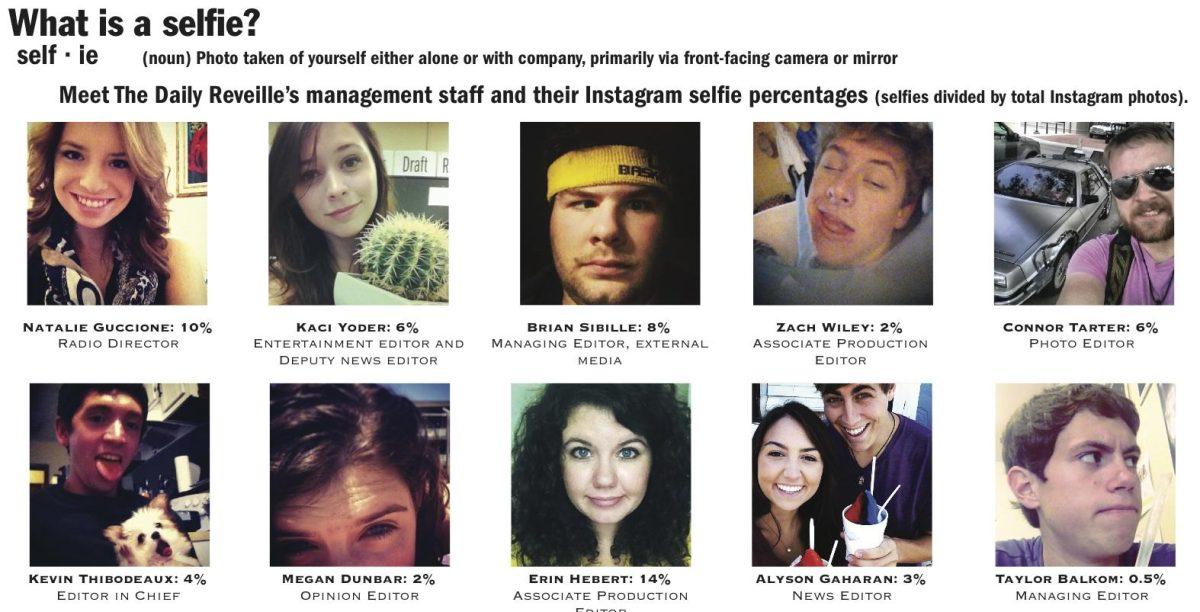It’s a rare day that I walk through the quad without seeing someone taking a picture of themselves. You know when it’s going to be shared on social media because they make the face.
The selfie face.
If you catch someone making the selfie face, they’ll give you an embarrassed smile. We all know that we are all guilty of it, so why be embarrassed?
Why is it such a big deal that we are caught taking pride in our appearances and want to share that moment, for others to see and for ourselves to look back on later, when we are having a bad day?
Selfies should not be criticized, but celebrated.
Since signing up for Instagram in January, I have posted 378 photos. Of those, 223 were pictures of me, either alone, with others or with someone’s cat.
I am a member of Instagram’s growing #SelfieNation, and it’s really no wonder I spend so much time worrying about my online image.
Growing up we are taught that there is value in appearance. Whether your parents were constantly on your back about the clothes you wore or telling you to stand up straight, the idea was clear.
But now that we’re older, there’s a lot of criticism for advertising yourself as if you take pride in your appearance.
This negative feedback exists in excess for females. We are told to quietly strive for seemingly effortless beauty, but never to show satisfaction.
What makes us beautiful? When we don’t know we’re beautiful.
The reaction to selfie culture is going in one direction — negative.
Time magazine ran a story on The Me Generation, consisting of children born in the ’80s and ’90s. In this article, we are described as self absorbed, narcissistic attention seekers.
Now we are being criticized by those older than us for overcoming the battles and celebrating ourselves. One might blame this on a generation gap, but it has a lot more to do with Internet presence than it does with age.
Our parents didn’t have to worry about being denied a job because of blog posts or tagged photos from a scandalous Spring Break 2013. We have to take this into consideration when altering our privacy settings on Facebook.
It’s not just jobs at stake, either.
Even the most accepting among us will admit to judging something or someone based on appearance. Whether to find a job, date, friends or even credibility in character, this virtual résumé is important to maintain.
The Time article’s cover photo was a female, presumably late teens/early twenties, lying on her stomach, iPhone raised above her head as if taking a photo of herself.
I can’t say that I see any harm in this concept. If you like the way you look, you take a picture of it and post it so others can see it. For some, it’s a way to remind yourself, on a particularly bad day, that you are the hottest thing walking on the streets.
Yes, it’s true that this is a form of seeking attention. But everyone is an attention seeker. Humanity strives for recognition.
There is no danger tied to promoting yourself in a positive manner on social media. The best thing about social media is that, in comparison to other forms of media, it is easily accessible and controlled by the individual.
If you have a problem with me posting pictures of myself on my Instagram, the unfollow button is right there.
Jana King is a 19-year-old women’s and gender studies sophomore from Ponchatoula, La.
Opinion: #SelfieNation a good thing
By Jana King
September 18, 2013








